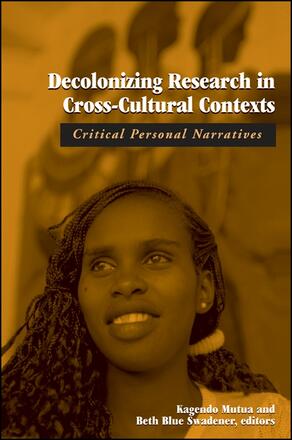
Decolonizing Research in Cross-Cultural Contexts
Critical Personal Narratives
International scholars share their experiences with the challenges inherent in representing indigenous cultures and decolonizing cross-cultural research.
Description
Winner of the 2005 Outstanding Narrative Research Book presented by the Narrative Research Special Interest Group of the American Educational Research Association
Drawing from their experiences in cross-cultural research, scholars from Africa, Latin America, Asia, Australia, the United Kingdom, and North America discuss their attempts to reclaim and reposition the representation of indigenous cultures in their work. They raise critical questions that resist the centrality of the English language as a medium of research and of the Western academy as the locus for knowledge production, reframe cross-cultural research agendas to include ways of knowing that have been excluded all too often, and offer creative ways of using cross-cultural collaboration.
Kagendo Mutua is Assistant Professor of Special Education at The University of Alabama. Beth Blue Swadener is Professor of Curriculum and Instruction at Arizona State University.
Reviews
"Work that explores decolonialism is absolutely needed. The strengths of this book include coverage of general postcolonial issues; the multiple and traveling positions, identities, and subjectivities that are experienced by postcolonial scholars; and the possibilities for reconceptualizing research as a movement toward decolonialism. " — Gaile S. Cannella, coauthor of Childhood and Post-Colonization: Power, Education, and Contemporary Practice
"The authors make a number of major points about the nature of research, the subtle pervasiveness of dominance and power in education and educational settings, and the importance of multiple voices in ethnographic and qualitative research. " — Frank C. Worrell, University of California at Berkeley